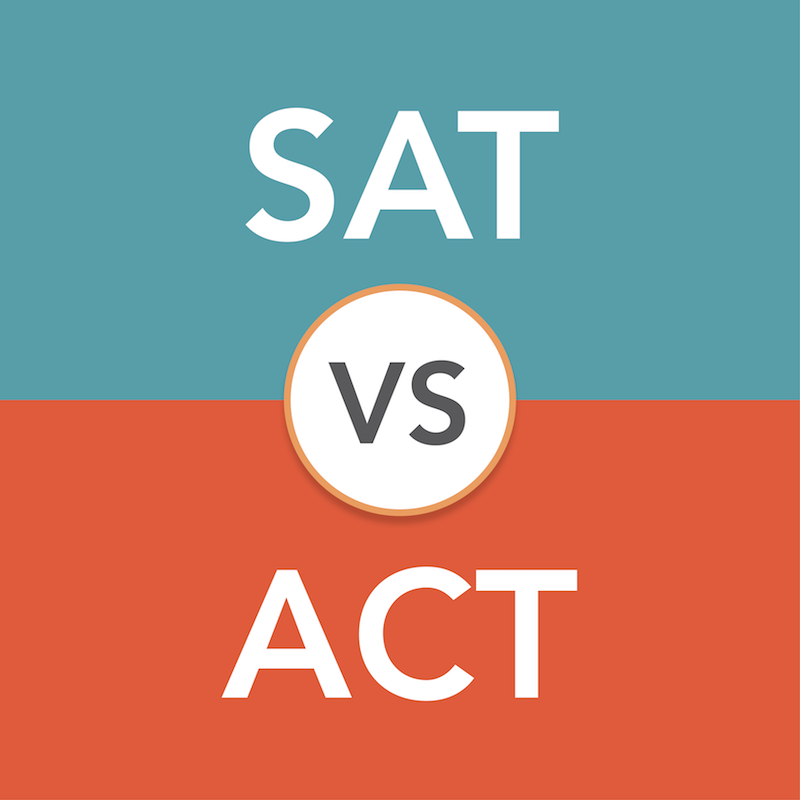SAT vs. ACT: Differences and Student Preferences
With the early admissions deadline for some colleges just around the corner, seniors are cramming their last standardized test scores into their applications. However, many underclassmen are confused about the differences between the SAT and the ACT. Despite them both being standardized tests accepted by almost all universities, each test has its unique factors.
One of the main differences between the two tests is that the ACT has a specific science section, while the SAT does not. The ACT does not test science knowledge per se, rather critical thinking and analytical skills. In terms of the reading questions, the ACT is usually objectively easier to decipher, while the SAT requires more evidence and context-based answers. For math, the ACT provides no formulas while the SAT does, and the ACT tends to cover a wider range of math topics and tests in a more straightforward manner, while the SAT has a larger emphasis on data analysis and word problems. Lastly, the ACT has less time for each section compared to the SAT.
As for preferences, some seniors preferred the ACT because of the mathematical concepts covered on the exam.
“I prefer the ACT because I’m on a higher math track, and the ACT has a little more calculus and precalculus on it, which was what I was already learning at the time,” said senior Hilary McDonald (‘22). “It was a little easier to study that and not have to think about math I learned in middle school.”
Others preferred the ACT because of the time-specific differences.
“I prefer the ACT because the questions are simpler and it’s a faster pace,” said senior Catherine Smart (‘22).
On the other hand, time management is difficult to gauge in the ACT, so many students preferred the SAT.
“I prefer the SAT because I already struggle with time management during tests, and the ACT is a lot faster than the SAT,” said senior Joanna Louis-Ugbo. “It’s easier for me to take the SAT because I don’t need to worry about the time as much.”
Although standardized test scores have been a major factor in college admissions in the past, students had an overwhelmingly positive opinion on most schools becoming test-optional.
“I think [colleges going test-optional] is good because I feel like standardized testing should be fazed out as a way of judging someone’s cognitive ability, but I definitely think standardized testing would be a good supplement,” said McDonald. “For example, if you want to go into something STEM-related, it would be smart to submit your ACT scores.”
Students believe that the process of using standardized testing as a tool to accept applicants isn’t as equitable as it should be.
“Specifically in the magnet program, eight times out of ten you’re probably well off,” said Louis-Ugbo. “We’re very privileged to go to this nice school, and something that comes with that privilege is being able to buy resources like SAT books and do programs outside of school, which a lot of students simply don’t have; essentially, some people have the resources to get a good score and others don’t.”
In order to achieve progress in the college application process over the years, students feel that taking more time to review the specifics of each application is necessary for an even playing field.
“They could also try taking a more holistic view of factors like background and income, they like to say they do, but I doubt they actually do,” said Louis-Ugbo. “At Chamblee, we have a plethora of opportunities and teachers that actually push you, compared to students who go to a school where teachers don’t really care, which affects their GPA and such.”
Even though more students preferred the ACT, the SAT is generally more engraved into everyday schooling.
“There’s a class at Chamblee called SAT prep but there’s nothing for ACT; I think the SAT is very baked into American culture, probably because AP tests and the SAT are from the same company,” said McDonald.
Regardless of which test you take, repetition and hard work pave the way to success.
“My experiences for both revolve around the fact that it doesn’t matter how smart you already are, you just need to learn how to take that specific test,” said Smart. “They both take a lot of practice to get a good score.”
Your donation will support the student journalists of Chamblee High School Blue & Gold. Your contribution will allow us to print editions of our work and cover our annual website hosting costs. Currently, we are working to fund a Halloween satire edition.

Allison Lvovich is a senior, and this is her second year in journalism. In her spare time, she plays/teaches tennis and plays chess. In 5 years time, she sees herself doing something related to statistics. One movie that encapsulates her Chamblee experience is "Legally Blonde."






